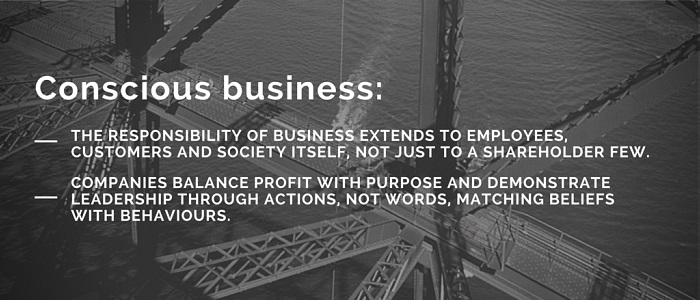
A few weeks ago, Stephen Waddington asked his community for their favourite 50 PR media – 10 blogs, 10 books, 10 communities, 10 newsletters and 10 podcasts – to crowdsource a summer list blog post (awesome idea, right?).
Of course, I jumped in too and mentioned Trust Me, PR is Dead as my favourite PR book this summer. (My blog actually ended up making his list!)
The one thing that stuck in my mind the most while reading the book was the super strong link that Robert Phillips makes between PR and sustainability. Honestly, I haven’t seen a PR professional advocating conscious business so passionately before. This makes the book more a business book, rather than a PR read.
I myself had researched social media for sustainability, but never really focused that much on the PR practice for sustainability, although it makes perfect sense. It comes natural to me – first because of my passion for sustainability, and second because I am a digital native and I understand or better yet live by the seismic changes that are happening in our society and the economy as a result. But I guess that’s not the case for many others.
The March of Conscious Business
PR as we once knew it might be dead, but conscious business is not. Or shouldn’t be. And it should guide the PR practice of the future.
The main principle here is walking the talk. People trust actions, not words. As Robert Phillips puts it, “it’s what you do that counts, not what you say.”
That’s why PR needs to change. Or the “corrupt version of PR” that everyone knows and has been dominating needs to extinguish:
PR has become the ugly spawn of the consumer society. It has encouraged wants over needs and jeopardised the planet; has celebrated spin over honesty; and has sought to manage the message to the people rather than let the people speak for themselves.
Stuart Bruce explains it really well:
But today it’s different. The seismic shifts mean that the corrupted form of PR doesn’t work any more. You can’t spin your way out of trouble by accentuating the positive and eliminating the negative. Today, you’re more likely to have the reputation you deserve, rather than the reputation you paint.
Today not only are there clients and employers who want you to the right thing, but now you can tell them they have to do the right thing. You tell the truth, not just because telling the truth is the ethical thing to do. You tell the truth, because if you don’t you’re far more likely to be found out and exposed.
In an older post, I made the point that individuals today feel empowered to demand change and expect social consciousness from brands, and they have the tools (Facebook, Twitter, Instagram etc.) to do so. This has left businesses with no other choice but to meet the triple bottom line balance between environmental, societal and economic concerns.
Walking the Talk as Key Principle
Putting sustainability at the core of any business and living by its principles – walking the talk – is key to a sustainable reputation too.
And this is where the future role of PR lies in: As reputation keepers PR professionals should use their knowledge and skills as a force for good.
It is now time to stop “posturing and positioning one’s political or business interests in relation to critical issues” and tackle the issues themselves; it is time to stop “encouraging a consumption fetish over the longer-term sustainability of people and planet.” Because the “the idea that companies should “manage the message” and can always spin their way out of trouble” no longer holds true.
The problem Robert Phillips explains is that:
Too many consultancies get away with it because so many organisations see business problems as communications problems, when they are not. PR and communications firms cannot transform a bad product or business plan into a good one, through any amount of spin or anything else. It is time to recognise this and to change not the way we communicate but the way we act.
Furthermore, “businesses are no longer expected just to deliver great products and services and to make money in return. They are increasingly expected to play a more influential societal role.” Which is why “there can be no trade-offs: a company cannot do what is right in one area of the business and something less purposeful, less trusting elsewhere. Nothing works in isolation.”
Currently, however, the majority of organisations, government structures, markets and leadership teams are built for yesterday and are no longer relevant or fit for purpose today. In our largely corrupted worldview of how the world works, there is a need for a radical transformation of business models, team structures and leadership culture. Conscious business should be the maxim. PR, then, should communicate the results of that maxim, not spin it.
The Future is Consciously Socially Responsible
The organisation of the future is one that demonstrates “social leadership and social impact as well as social purpose” and by doing so brings the social movement to life.
All this speaks loudly of the pressing need for sustainability to be fully embedded throughout organisations, where the responsibility of business extends to “employees, customers and society itself, not just to a shareholder few” and where guided by the social economy companies “balance profit with purpose” and demonstrate “leadership through actions, not words, matching beliefs with behaviours.” That is conscious business.
I stand by my previous statement that using new, uncorrupted PR to create a sustainable future for organisations and society is smart business because the future of PR is socially responsible – one that helps conscious business become the norm.
To finish off, I leave you with my favourite quotes from the book:






